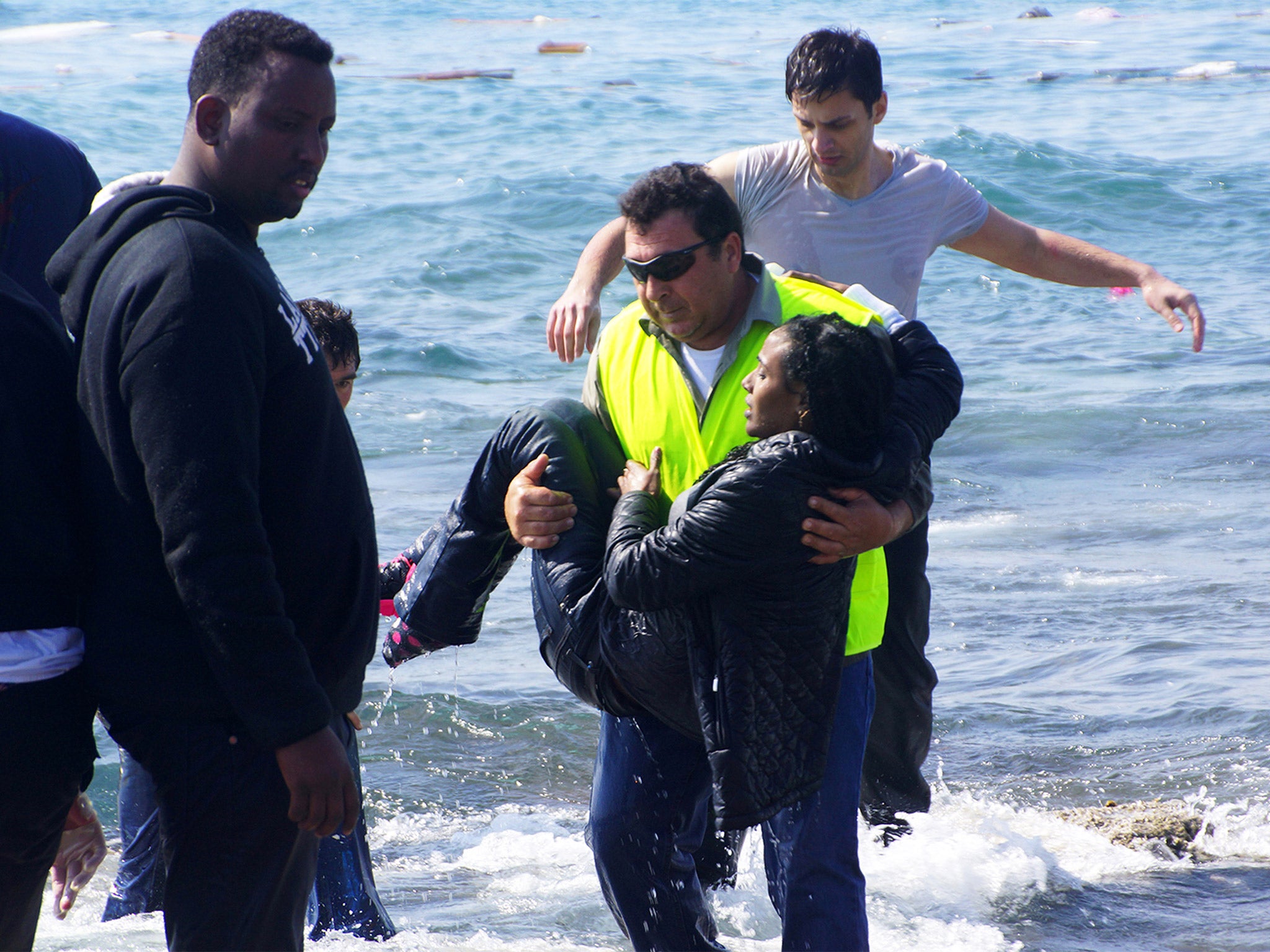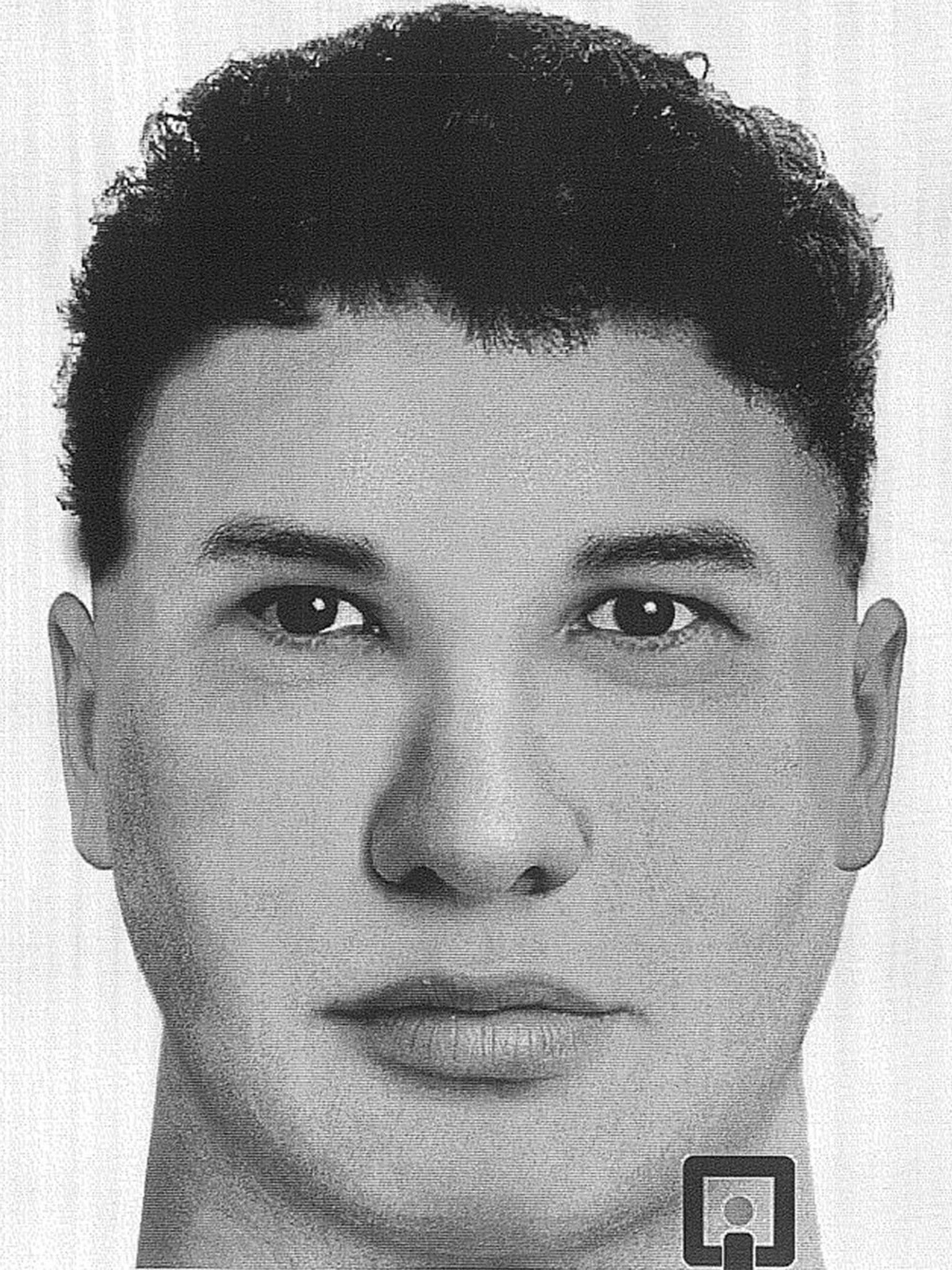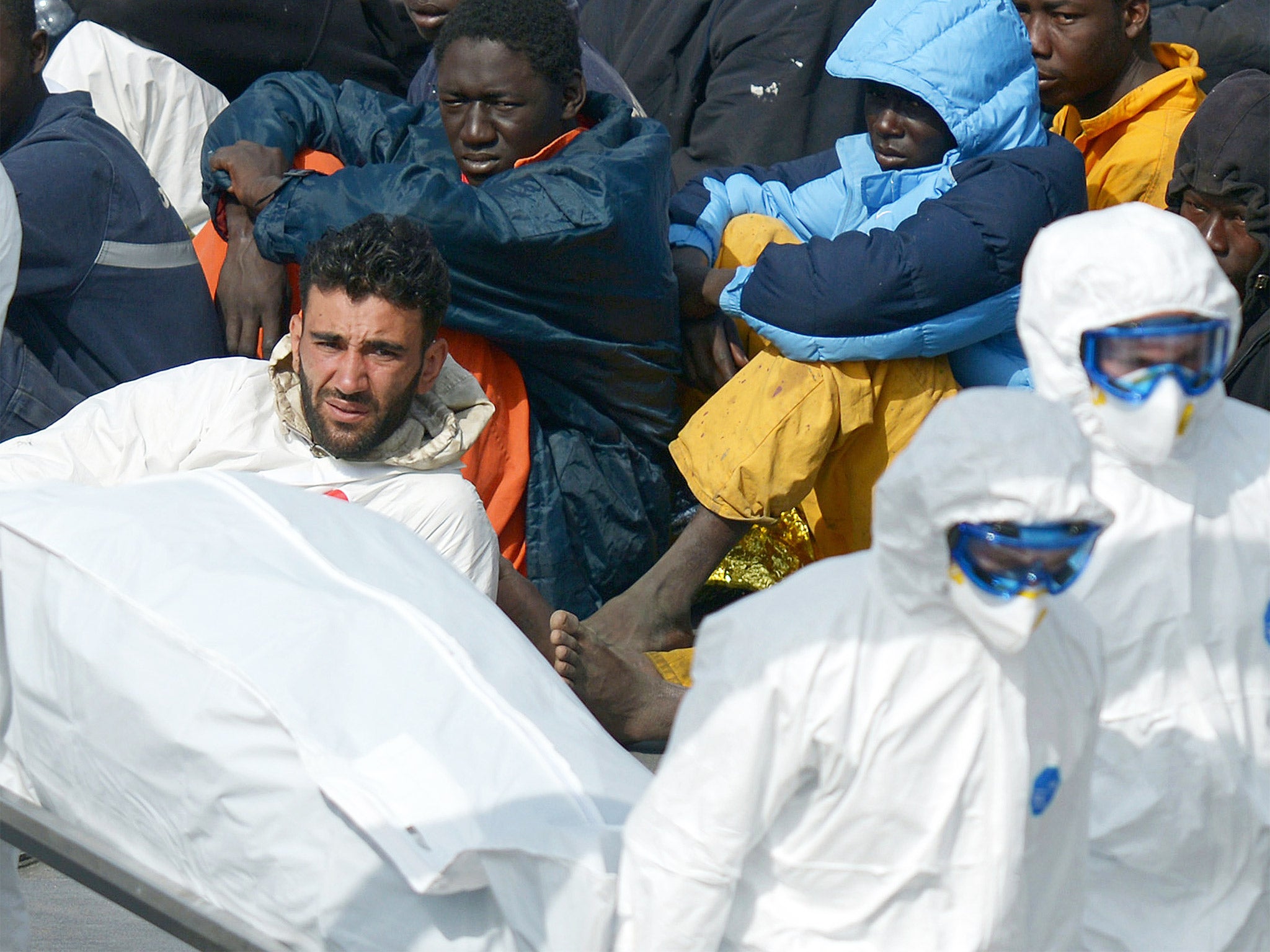Migrant boat disaster: Smuggler known as 'The General' laughed about deaths on crossing from Libya to Italy
Mered Medhanie, an Eritrean based in Libya, was recorded boasting about booming business in people-trafficking

Your support helps us to tell the story
From reproductive rights to climate change to Big Tech, The Independent is on the ground when the story is developing. Whether it's investigating the financials of Elon Musk's pro-Trump PAC or producing our latest documentary, 'The A Word', which shines a light on the American women fighting for reproductive rights, we know how important it is to parse out the facts from the messaging.
At such a critical moment in US history, we need reporters on the ground. Your donation allows us to keep sending journalists to speak to both sides of the story.
The Independent is trusted by Americans across the entire political spectrum. And unlike many other quality news outlets, we choose not to lock Americans out of our reporting and analysis with paywalls. We believe quality journalism should be available to everyone, paid for by those who can afford it.
Your support makes all the difference.Italian investigators have overheard leading organisers of the people-trafficking that has ended with thousands of deaths in the Mediterranean mocking the dire predicament of the refugees whose exploitation has made them millionaires.
The 34-year-old Eritrean, Mered Medhanie, who is known as “The General” and is based in the Libyan capital, Tripoli, has boasted about the overcrowding of migrants on to vessels that set off from the North African coast to Italy. “They say I put too many aboard, but they’re the ones who want to leave in a hurry,” he said, laughing, according to reports of wiretap evidence in the Italian press.
A second trafficker, who is said to have carved up much of the lucrative trade with Medhanie, declared last summer of some of his apparent paying customers: “They organised another trip a few days ago. I don’t know what happened – they probably died.”
Ermias Ghermay, an Ethiopian migrant-turned-trafficker, was believed to be behind the tragedy in which 366 migrants drowned off the Italian island of Lampedusa in October 2013 – the disaster that forced the Italian government to introduce the Mare Nostrum search and rescue mission in a short-lived attempt to prevent more deaths.

Like Medhanie, Ghermay is living undisturbed in Tripoli, say Italian police, despite the terrible crimes of which he stands accused. A wire tap ordered by Maurizio Scalia, the deputy chief prosecutor in Palermo, Sicily, revealed Medhanie’s indifference to the suffering. “We do an illegal job – but what do you expect? We’re not the government,” he says, according to La Stampa newspaper. The newspaper quoted claims by law enforcement officials in Palermo that Ghermay’s smuggling network had made €100m in the past two years.
Police in Palermo, who on Monday arrested 15 people in an attempt to bust one of Mediterranean’s biggest people-smuggling rings, say the trafficking godfathers are still at large – and plying their evil trade from the Libyan capital.
They believe Medhanie, who likes to compare himself to former Libyan dictator Muammar Gaddafi, enjoys the protection of local law authorities in Tripoli – which has been taken over by a rival Islamist “government” in opposition to the internationally recognised government which has fled to the east of the country.
The evidence suggests he dotes on his own family – his wife and son are said to enjoy refugee status in Sweden. But for this trafficking boss, migrants – including many of his own countrymen and women – are just “numbers” and “business”. Other recordings have revealed how his callous trade is booming. “This year I’ve done well – I sent off 7,000 to 8,000,” he was heard saying.
In another recorded conversation between Medhanie and his accomplices in Italy, he is heard discussing the pros and cons of opening bank accounts the United Arab Emirates, but deciding that American or Canadian banks were a better bet because “there they don’t ask you where the money comes from”.
Both trafficking godfathers insist payments from the desperate migrants fleeing poverty and war zones have to be made up front. Migrants are not allowed to leave camps until the smugglers’ financial requests are met.
Police in Palermo arrested 15 human traffickers who were part of a gang that brought migrants illegally into Europe. They had hoped to seize 24 suspects, but another nine evaded capture.
The suspects were linked to the criminal organisation run by Ghermay. Those arrested, said to be Eritrean, Ethiopian, Ghanaian and Ivory Coast nationals, oversaw the last part of the migrants’ journey, from southern Italy to northern Europe.
Investigators suspect they help the asylum seekers leave reception centres and ferry them via bus or van to Rome or Milan and from there to other EU countries, mainly Germany, the Netherlands, Sweden and Norway, prosecutor Geri Ferrara told Il Corriere della Sera newspaper. Migrants had to pay another €1,000 or more to be taken to their final destination.
Palermo’s chief prosecutor, Francesco Lo Voi, said: “The investigations continue and at an international level. We’ve hit one organisation but there are many others earning huge amounts of money from desperate people.”
Meanwhile, pictures emerged of refugee being whipped by a trafficker at a camp in Zuwara, Libya. The Syrian migrant who secretly filmed the violence said the traffickers were beating other refugees to extort more money – in addition to the €5,000 some had already paid for the perilous sea crossing in squalid conditions.

Prosecutors in Catania said that the Tunisian trafficker Mohammed Ali Malek, 27, arrested on suspicion of multiple manslaughter for causing last weekend’s disaster in which 800 people died, had steered his crammed boat into a collision with a merchant ship, the King Jacob, that was coming to its rescue.
Join our commenting forum
Join thought-provoking conversations, follow other Independent readers and see their replies
Comments